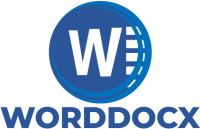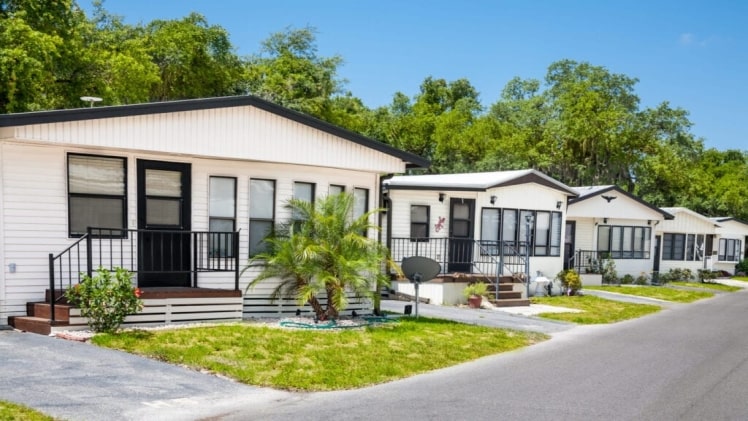Home is where the heart is! After a long day at work, everyone longs to relax in the familiar surroundings of their home. Does it matter if yours is a permanent building or a mobile home? Are mobile homes worth the trouble? Can a homeowner rest have assured that their mobile home metal roofing is as good as other homes?
What is a mobile home?
A mobile home is also known as a trailer. A mobile home is a small housing unit with wheels that allow it to be moved from one destination to another. Typically, it’s a home on the move.
A mobile home is a temporary version of a permanent one. A permanent house is installed with a masonry foundation, making it impossible to move.
Why do many people prefer a mobile home?
There are several advantages of owning a mobile home instead of investing in a permanent house. On the other hand, there are also disadvantages of buying a mobile home over the other option. Let’s delve into the features, pros, and cons of purchasing a mobile home to make an informed ifvod tv.
The features of a mobile home
A mobile home is made by a manufacturer who sells a finished housing unit to an individual. Mobile homes are attached to a moving vehicle to a desired site or destination. Manufactured homes are packed in a parking yard or leased land when not in use. An individual in need of the cabin takes it at will but pays for the parking or stalling fee at the yard.
Alternatively, a homeowner can park their mobile home in their backyard.
Advantages of investing in a mobile home
-
Low-cost housing
A mobile home is manufactured in a factory and then transported to the preferred site. One of the reasons it is cheap is that it does not need a masonry foundation. Affordability makes it easy for many people to own a home. Additionally, a mobile home is affordable because it costs less per square foot than buying a stick-built space.
-
Flexibility
A mobile home is a semi-permanent house. Once you build a permanent home, you cannot change its location. The beauty of a mobile home is the flexibility of moving around with your home. A family friend has been transferred to work in a different state. His greatest headache is the extra cost of paying for a condo or flat, whereas he had invested in a permanent family house. However, if he had invested in a mobile home, the story would have been different.
-
Built-in a controlled environment
A mobile home is manufactured in a factory that controls operations, timelines, and other factors. Therefore, the house components can be made despite elements of bad weather. The construction does not also depend on the unpredictability of subcontractors and terms of service with the homeowner.
-
Easily available
Mobile homes are prefabricated units ready for sale. Therefore, a person who wants to own a home doesn’t have to source for a surveyor, a contractor, and other professionals needed when building a permanent house.
On the other hand, to build a permanent house, one needs to be patient until the construction period lapses for the house to become habitable.
-
Provides getaway accommodation
A mobile home is a perfect option for creating lasting memories for your family. During vacations, one only needs to fuel the trailer car and tow the cabin to the vacation destination. The cabin helps one cut accommodation and dining costs characteristic of holidays and outings.
Disadvantages of a mobile home
1. Depreciates value
A mobile home is like a car. Once it leaves the showroom, it significantly depreciates its value. On the contrary, a stick-built home appreciates value with time. This is because the house is built on one’s land and the house on it. Additionally, permanent home is expensive to build, giving it a greater value than a mobile unit.
2. Expensive to finance
A mobile home is a personal property because it can be moved from place to place. On the other hand, a stick-built home is considered real property because it is attached to permanently-owned land. Lending institutions do not consider a mobile home as a tangible asset against which they can award a loan. Therefore, a homeowner is offered a chattel loan, which attracts a higher interest than a mortgage loan. Unlike a mortgage, a chattel loan comes with a short-term repayment period.
3. Attracts a parking fee/rent
A mobile home is parked in a yard. A mobile homeowner has a landlord who parks the cabin until needed. One must adhere to the rental rules and commit to meeting the expenses related to the structure. The mobile homeowner is also subject to the harassment of being a tenant, especially if one cannot pay up their parking rent.
4.Challenging to dispose
Finding a ready buyer for a cabin is challenging. If a homeowner wants to dispose of their cabin, one must be patient. A potential buyer may not be willing to give a reasonable buying price. And on finding a buyer, the owner must negotiate for the movement of the cabin to a new location. These kinds of demands are expensive and can discourage a prospective buyer.
However, selling a permanent home is quick and lucrative. The seller values the home’s property with regard to the land.
5. Prone to calamities
Mobile homes are prone to adverse weather conditions. Ideally, a cabin is placed on wheels and cannot withstand calamities, such as earthquakes, severe storms and strong winds.
On the contrary, stick-built homes are founded on a masonry foundation, rendering the house stable. The foundation is dug deep in the ground, giving it the capacity to withstand the weight above. The walls are attached to pillars and other elements, making it firm against string winds, waters and other calamities.
Parting shot
A mobile home is an excellent housing solution. It is ready-made, cost-effective and flexible. However, they have demerits over the traditional stick-built structure considered a valuable asset for the homeowner and the lending institution. A mobile home provides a timely getaway for holidays and outdoor activities for individuals and families.

